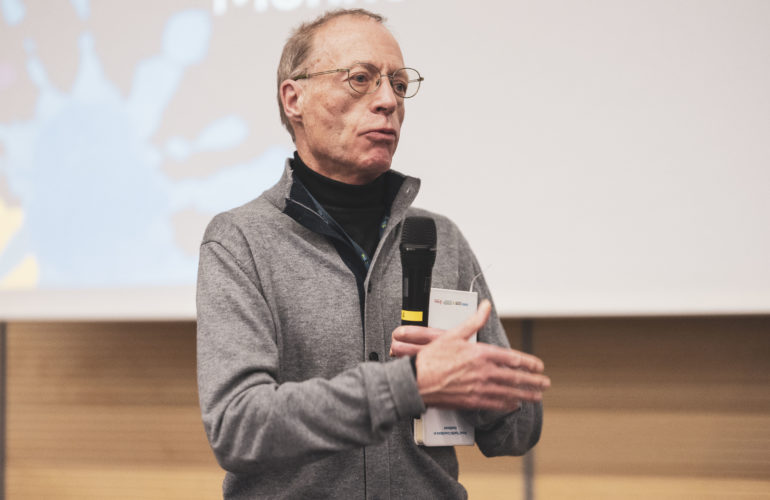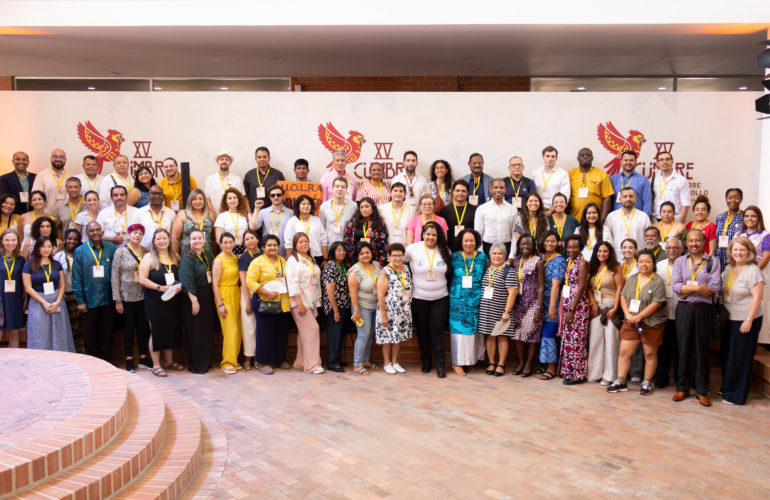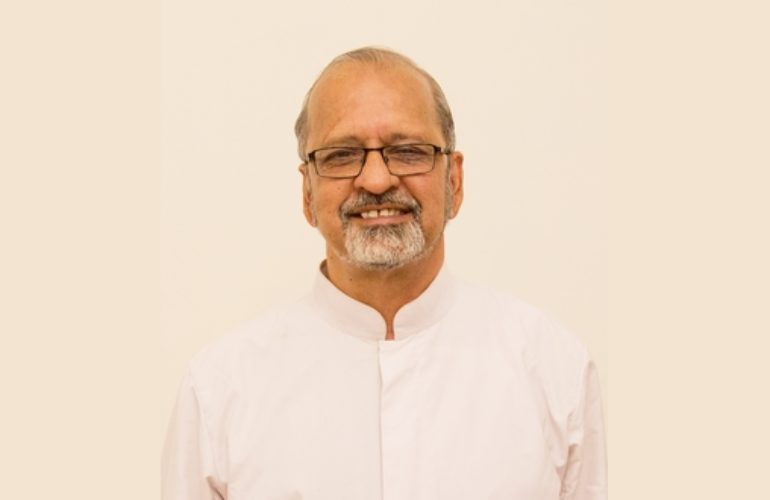“We Must Ensure That Social Justice is at the Heart of Global Policymaking”
On World Day of Social Justice, celebrated around the world on February 20th 2025, we sit down with Ignacio Alonso Alasino (ICMC and the FOWLS Project) and Basma Louis (International Young Christian Workers) to take stock of the future of work, the fight for social justice, and their plans for the coming period.
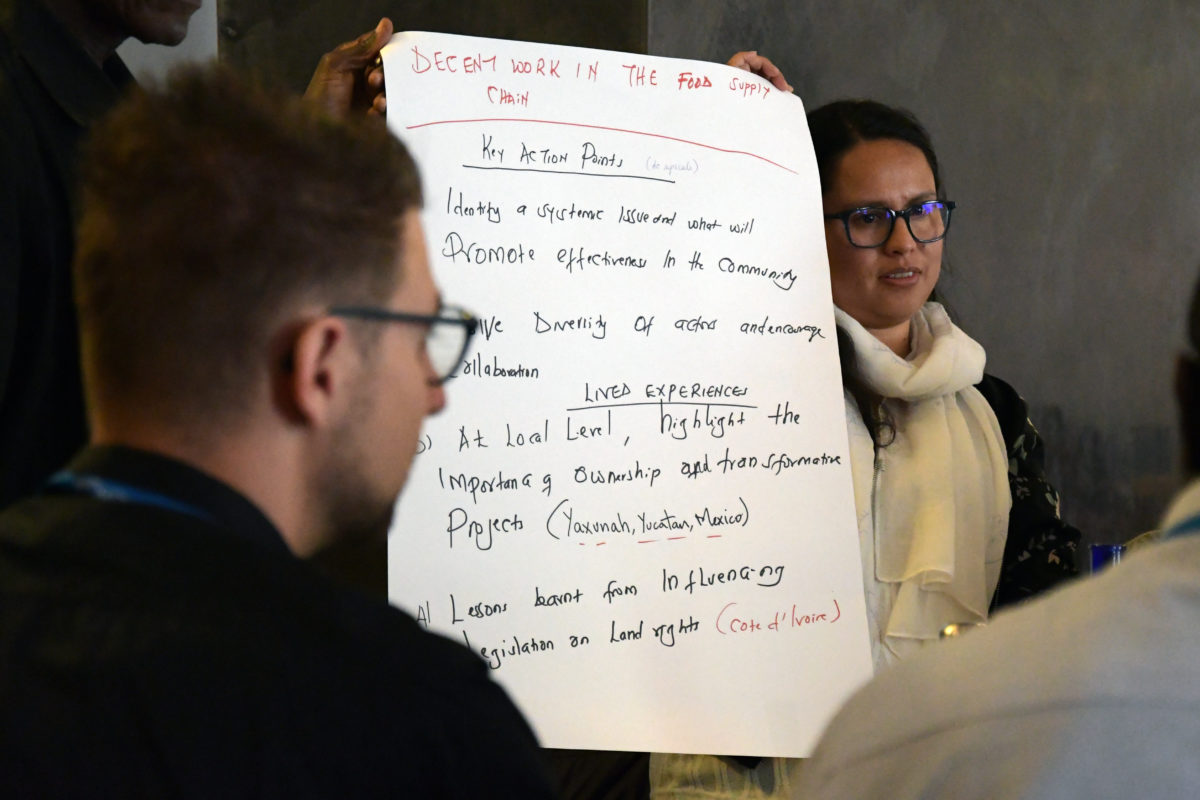
ICMC: Thanks so much for agreeing to sit down with us today. Could you first introduce yourselves, and tell us something about your work?
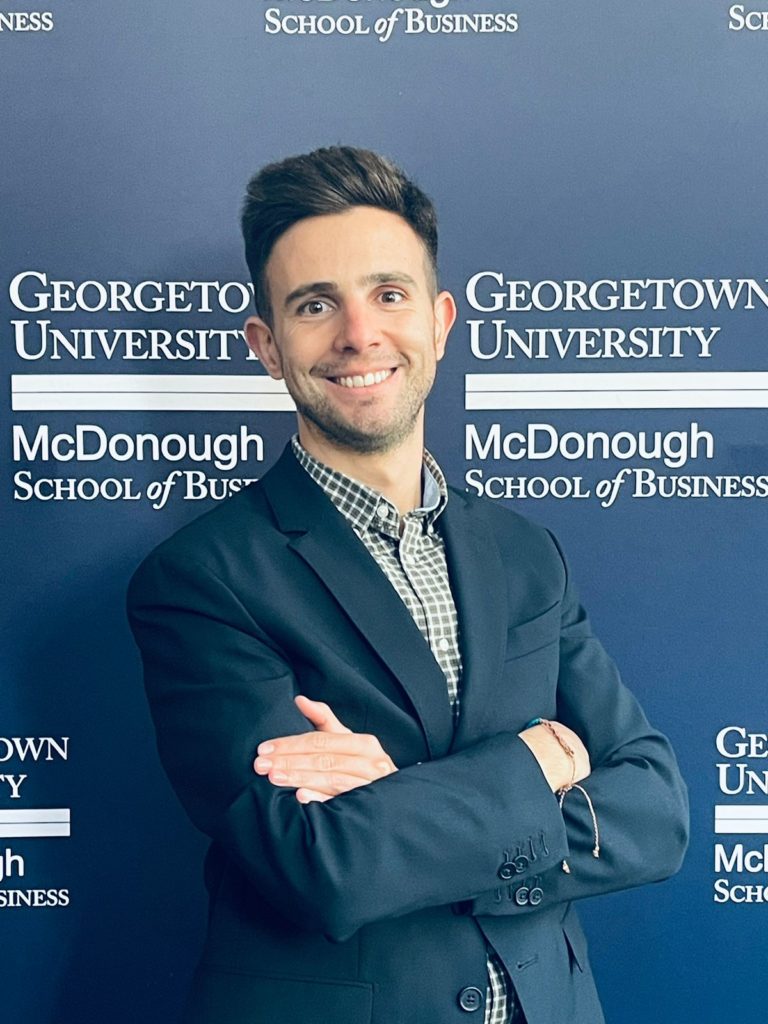
Ignacio Alonso Alasino: I’m Ignacio Alonso Alasino, Project Manager of the “The Future of Work – Labour after Laudato Si’” (FOWLS) Project, an initiative hosted by ICMC. I also serve as the ICMC focal point for Latin American regional issues, as well as advocating for dignified work at national, regional, and international level.
The FOWLS Project is a global initiative that explores the future of work through the lens of Laudato Si’, emphasizing the inseparable link between work, care, and the protection of our common home. We engage Vatican institutions, trades unions, business associations, interfaith actors, academia, grassroots organizations, and youth movements in advocacy for policies that recognize care as work and work as care. Together, we ensure that workers’ rights and social justice are central to discussions on socio-economic and ecological transitions and transformation.
Basma Louis: And I’m Basma Louis, International President of the International Young Christian Workers (IYCW). We are a dynamic movement of young workers, committed to developing and transforming young people’s lives. 2025 is our centenary, so we’ve had this same commitment for the past one hundred years!
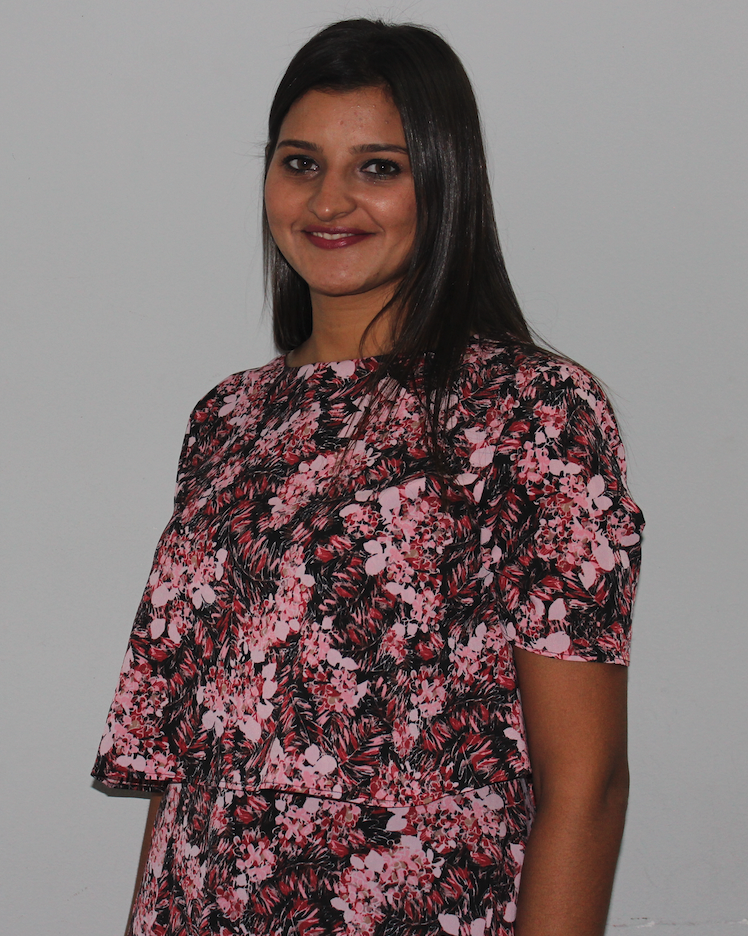
Today, we have a presence in countries across Europe, Africa, Asia, and North and South America. The movement pursues education for young workers as the key route to emancipation for young people, and a method by which to build the foundations for a new society. We are young, and we represent some of the most vulnerable young workers, including domestic workers, migrant workers, factory workers, temporary workers, workers who are young women, and those in precarious or informal work.
ICMC: Can you talk a bit about the FOWLS Project network, and how you’ve been working together in this initiative?
IAA: Over the past five years, the FOWLS Project has developed a network of partner organizations, and a governance structure that ensures our activities driven by their knowledge and expertise.
Today, we have just under 40 partner organizations around the world, drawn from Catholic-inspired organizations, ecclesial organizations, institutions related to religious congregations, and academia, alongside a wide range of workers and youth organizations and federations. I should mention also that we’ve worked in close collaboration with the International Labour Organization (ILO) since the beginning, which is a crucial partnership and source of support for us.
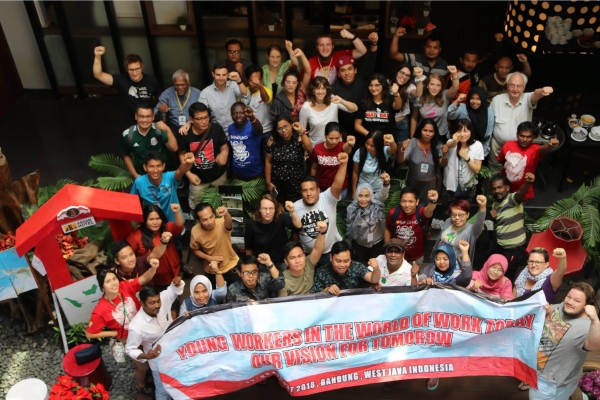
BL: IYCW has been actively involved in the FOWLS Project since it began. We’ve participated in diverse ways, notably by co-organizing a 2018 international seminar in Bandung, Indonesia, on ‘Reshaping the Future of Work in the midst of Digitalization, Precarity and Unemployment: Action and Commitment of Young Workers’. We’ve also participated in interreligious dialogues, many regional and international discussions on migrant workers, precarity and flexibilization of work, and global value chains, and worked on the project’s research track.
Overall, I would say we have especially contributed to the FOWLS Project by bringing the voices of young workers to the international and regional spaces in which it operates. We are deeply concerned about the issues the project raises, because they affect young workers everywhere. Our participation in the FOWLS Project enables us both to represent young people, and to build connections to other movements also addressing the challenges of the future of work. We can only achieve change if we are working together, and the FOWLS Project gives us this opportunity.
ICMC: Today is World Day of Social Justice, the first time this annual celebration has taken place with a fully operational Global Coalition for Social Justice. Could you tell us about the Coalition and your involvement in it?
IAA: The Global Coalition for Social Justice is a multi-stakeholder initiative convened by the ILO to strengthen global efforts in advancing social justice, ensuring decent work, and fostering inclusive societies. It brings together governments, workers and employers organizations, civil society and faith-based organizations, United Nations agencies, and academic institutions, to collectively address inequalities and promote fair and sustainable economic systems.
ICMC is proud to be a member of the Coalition, reaffirming our commitment to advocating for social justice, particularly in the areas of migrant rights, dignified work, and integral human development. Furthermore, our involvement aligns with our broader mission of supporting displaced communities and ensuring labor policies uphold human dignity.
Through the FOWLS Project, we engage with network partners at each year’s International Labour Conference (ILC) to ensure that we are together amplifying the voices of faith-based and labor organizations in global discussions.
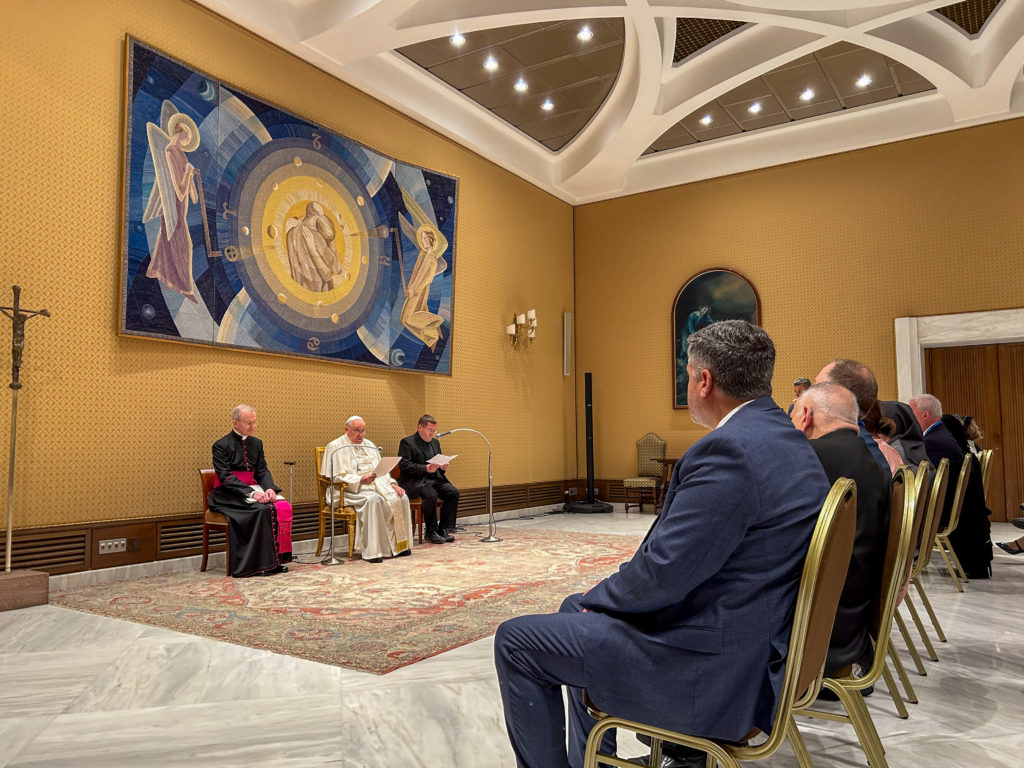
In Rome, in May 2024, we gathered for a consultation titled “Care is Work, Work is Care: Towards Building a Global Transformative Community and Contributing to the Global Development Agenda.” The event was organized by the ICMC-coordinated project “The Future of Work, Labour after Laudato Si’”, with the support of the Vatican’s Dicastery for Promoting Integral Human Development. It gathered a diverse panel of participants from 5 continents, over the three days. The participants were received by His Holiness Pope Francis in a private audience on the opening day of the event, during which the Holy Father advocated for decent and dignified work and better treatment of migrants.
BL: As I said before, at IYCW we understand the importance of collaboration, building alliances, and creating networks in order to achieve our goals. This is why we accepted without hesitation when the ILO invited us to become a partner in the Coalition.
More importantly, social justice is at the core of all our actions and advocacy efforts. The pursuit of a dignified life and the right to decent work are intrinsically linked to the broader goal of achieving social justice, and the role of young people is paramount. We represent the future, and it is therefore crucial that decision-makers both listen to us, and engage young voices across decision-making processes.
Membership of the Coalition not only provides us with a platform to voice our perspectives, but also empowers us to amplify the voices of young workers at the global level. It is of great value to be able to articulate our demands, particularly at a moment when the space for social movements to do this has contracted so far as to be non-existent.
ICMC: The Global Coalition for Social Justice is a fairly new initiative, endorsed by the ILO Governing Body in late 2023. What are its key activities so far?
IAA: Given that it is very new, I would say the Coalition has already taken significant steps to advance its mission.
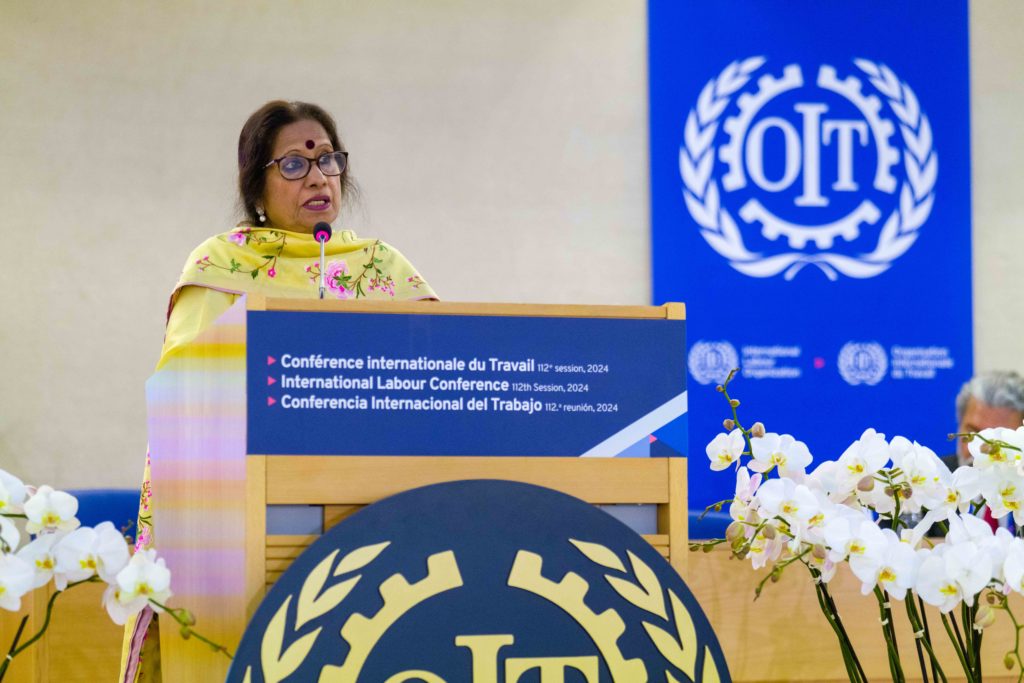
One of the key milestones was its inaugural forum in June 2024, which set the foundation for collaborative action. The Coalition has since then organized seven webinars addressing critical social justice issues, such as the impact of AI on work, the care economy, and child labor. These discussions have really provided valuable insights and fostered engagement across different sectors.
The Coalition’s Secretariat has also been actively identifying potential collaborative interventions and sharing them with partners, then gathering specific contributions from members, including ICMC, through a survey. This process has helped to more effectively align priorities and coordinate our efforts.
I should of course also say that the Coalition plays a key role in today’s World Day of Social Justice, which provides a crucial moment to reflect on the urgent need to build fairer and more inclusive societies. At a time when inequalities and labor precarity are continuing to grow, we have, for the first time, a framework for action and collaboration. The Coalition helps us to assume our collective responsibility to ensure that social justice is at the heart of global policymaking.
ICMC: To date, the Coalition has developed six thematic topics and 16 planned interventions. How far do they match the priorities of the FOWLS Project and IYCW, and how do you plan to contribute?
BL: We develop an IYCW International Plan of Action every four years, and many of our areas of focus are closely connected to the thematic areas and interventions of the Coalition.
The theme of realizing labor rights to ensure human dignity and meet basic needs is at the core of our work, and we continuously advocate for young workers to have a dignified life and access to decent work. In essence, most of the Coalition’s themes are deeply linked to our objectives as a movement, and we consistently develop activities and programs to address these issues.
In 2023, for example, our international work focused on informal work and employment, and we completed a significant piece of research on the realities faced by young workers in this context. For us, it is very important to present our findings to the platform provided by the Coalition, and to share the testimonies of the young workers involved.
While the priorities of the Coalition very much align with our own, we also believe it is essential to emphasize the transition from the informal to the formal economy, which is critical for achieving social justice in today’s world of work. Addressing the high rates of informality requires concrete, achievable steps to facilitate this shift, enabling young people to access decent work, social protections, and the opportunity to lead dignified lives.
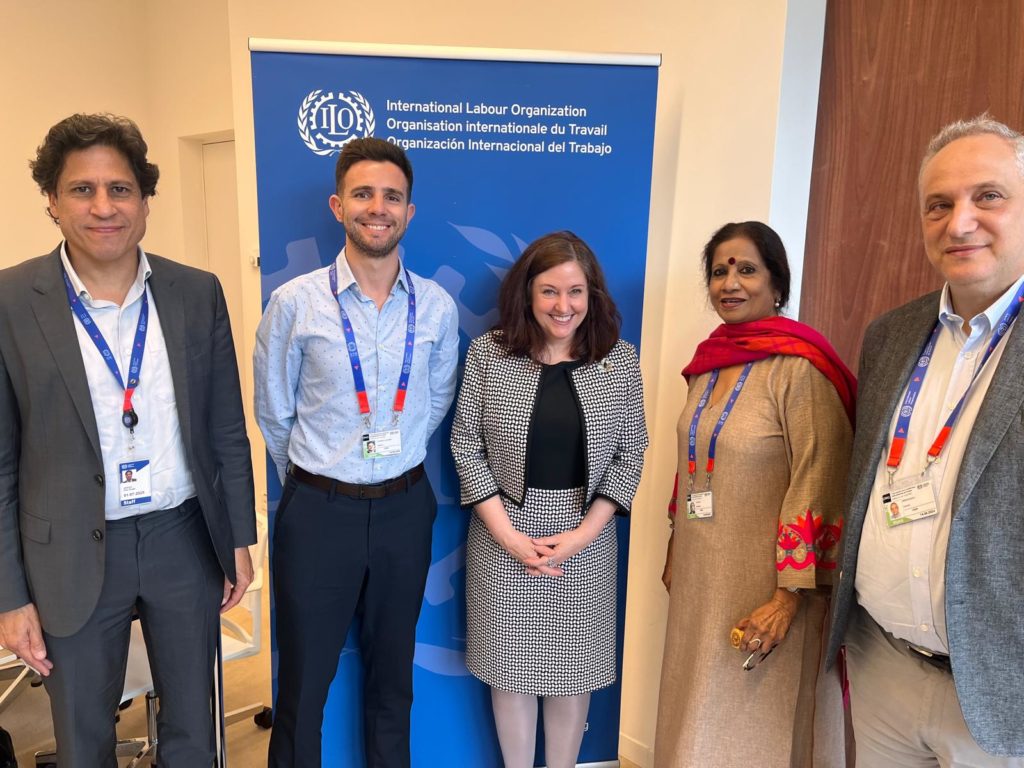
IAA: As a Coalition member, ICMC is committed to emphasizing the critical importance of integrating migration across the Coalition’s main thematic priority areas. ‘Migration’ here is particularly labor migration, and the labor rights of people on the move.
In the long term, we aim to ensure an ongoing focus on labor pathways, and on addressing the specific challenges faced by migrant workers and ensuring their needs are met. We also aim for analignment of the Coalition’s priorities with those of the Global Forum on Migration and Development (GFMD) process, for which ICMC coordinates the participation of global civil society.
Within the FOWLS Project network, we see an opportunity to reinforce our engagement by committing to activities that build resilience, strengthen institutions of social dialogue, and promote the realization of labor rights as human rights.
ICMC: What benefits does collaborating within the FOWLS Project Network and Global Coalition bring? Why work together?
BL: Our collaboration with Catholic-inspired organizations and networks, including the FOWLS Project, strengthens our influence on decision-makers and our capacity to advocate more effectively for the rights and needs of young workers. This is also true also of our cooperation with social partners around the world, and our partnership with UNESCO. In terms of the FOWLS Project, acting together within the Global Coalition for Social Justice enables us to be more effective in our advocacy and achieve a greater impact.
IAA: If I may, it’s useful to give you an example from within the FOWLS Network to illustrate how we draw strength and influence from our cooperation.
Kolping International Association (KIA) is a FOWLS Project partner and member of the Global Coalition for Social Justice. A Catholic social organization, it has around 400,000 members across 60 countries. As a Catholic movement, KIA joins us in promoting solidarity, economic and environmental well-being, and care for the common good.
When I think about our joint mission, I reflect on the words of Dr. Hildegard Hagemann of KIA, who describes our “shared concerns about the widening gap between the poor and marginalized and the super-rich within and between nations, between those who benefit from social security systems and those who are denied those benefits by irresponsible governments and unjust systems.”
I also wholeheartedly agree with her analysis of how “the world has changed dramatically towards an increasingly nation-centered and profit-driven mentality that, if left unaddressed, will lead to a dire global reality.” This really captures the urgency of our collective responsibility and joint action.
ICMC: Could you leave us with an idea of your plans for the coming period? What’s on the horizon for the FOWLS Project and IYCW?
BL: I mentioned earlier that this year is particularly significant for IYCW, as we celebrate the milestone event that is our centenary. We view it not just as a celebration, but as a strategic opportunity to strengthen our networks, amplify our impact, and influence policymakers. It’s also a key moment for us to reflect on our legacy, showcase our achievements, and reaffirm our commitment to the struggles of young workers worldwide.
We are welcoming more than 100 international delegates to Belgium, including current young leaders and former members of our movement. They’ll join us in honoring our rich history and dynamic future, and participate in workshops and discussions addressing critical issues such as migration, gender equality, the rise of right wing ideologies, and the future of work.
IAA: In line with our 2024 Roadmap for a Common Journey, developed in consultation with our network, in 2025 the FOWLS Project will focus on training, research, and dialogue consultations using the Common Social Discernment (CSD) methodology.
Our key thematic areas of focus for this work include decent work in food production and supply chains, the protection and care of migrants and their families, extractive industries, the just transition and care for our common home, social justice and human dignity, and the impact of AI on our societies.
BL: I should add that a central focus of our centenary activities will be to link to our international campaign on the fight against precarious work, which we see as a major barrier to achieving decent work and a dignified life. The campaign aims to expose the harsh realities faced by millions of young workers trapped in insecure, unstable jobs, and to advocate for stronger protections, fair wages, and better working conditions. Fighting precarious work is not just a campaign for us, but rather a fundamental part of our mission to ensure that every young worker can live with dignity and hope for the future.
This year will also see us work to foster deeper discussions on social justice, and create meaningful spaces within our movement to reflect on and address its various dimensions. We’ll launch new initiatives focused on promoting social justice, while also continuing our education and training programs for young people.
IAA: And we’ll of course see one other at the International Labor Conference in June!
ICMC: Thanks so much for sharing your reflections on the 2025 World Day of Social Justice, Ignacio and Basma!

Rachel Westerby
Independent writer and researcher on migration, refugees, and human rights.
